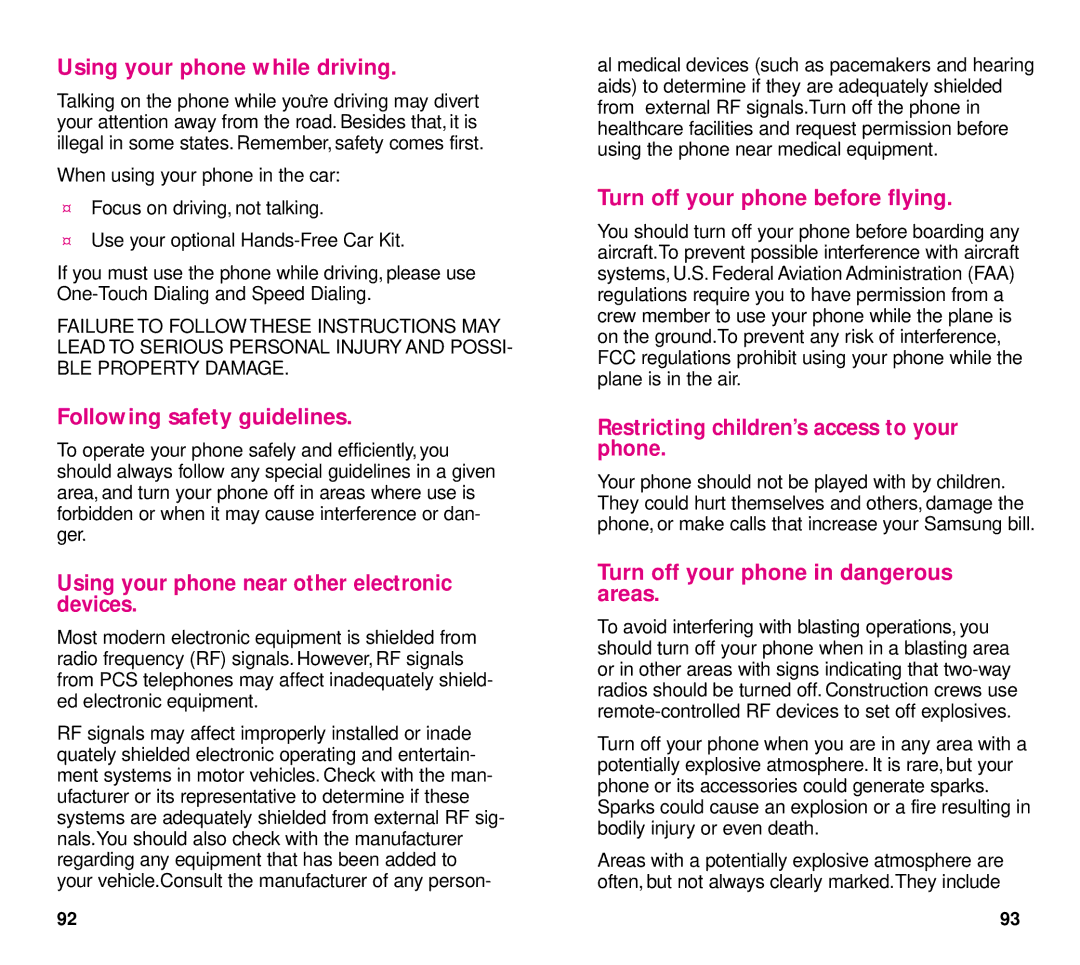Using your phone while driving.
Talking on the phone while you’re driving may divert your attention away from the road. Besides that, it is illegal in some states. Remember, safety comes first.
When using your phone in the car:
¤Focus on driving, not talking.
¤Use your optional
If you must use the phone while driving, please use
FAILURE TO FOLLOW THESE INSTRUCTIONS MAY LEAD TO SERIOUS PERSONAL INJURY AND POSSI- BLE PROPERTY DAMAGE.
Following safety guidelines.
To operate your phone safely and efficiently, you should always follow any special guidelines in a given area, and turn your phone off in areas where use is forbidden or when it may cause interference or dan- ger.
Using your phone near other electronic devices.
Most modern electronic equipment is shielded from radio frequency (RF) signals. However, RF signals from PCS telephones may affect inadequately shield- ed electronic equipment.
RF signals may affect improperly installed or inade quately shielded electronic operating and entertain- ment systems in motor vehicles. Check with the man- ufacturer or its representative to determine if these systems are adequately shielded from external RF sig- nals.You should also check with the manufacturer regarding any equipment that has been added to your vehicle.Consult the manufacturer of any person-
al medical devices (such as pacemakers and hearing aids) to determine if they are adequately shielded from external RF signals.Turn off the phone in healthcare facilities and request permission before using the phone near medical equipment.
Turn off your phone before flying.
You should turn off your phone before boarding any aircraft.To prevent possible interference with aircraft systems, U.S. Federal Aviation Administration (FAA) regulations require you to have permission from a crew member to use your phone while the plane is on the ground.To prevent any risk of interference, FCC regulations prohibit using your phone while the plane is in the air.
Restricting children’s access to your phone.
Your phone should not be played with by children. They could hurt themselves and others, damage the phone, or make calls that increase your Samsung bill.
Turn off your phone in dangerous areas.
To avoid interfering with blasting operations, you should turn off your phone when in a blasting area or in other areas with signs indicating that
Turn off your phone when you are in any area with a potentially explosive atmosphere. It is rare, but your phone or its accessories could generate sparks. Sparks could cause an explosion or a fire resulting in bodily injury or even death.
Areas with a potentially explosive atmosphere are often, but not always clearly marked.They include
92 | 93 |
